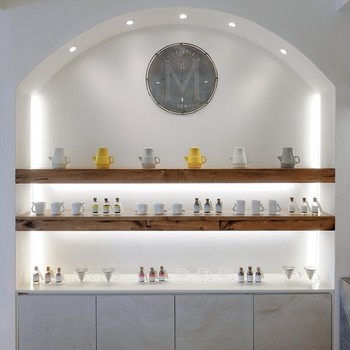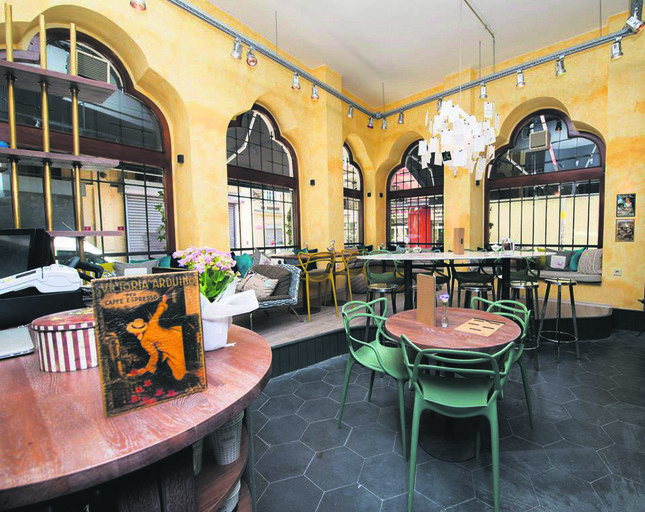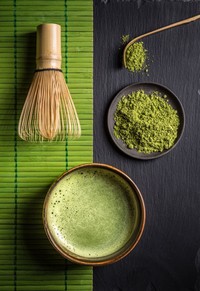© Turkuvaz Haberleşme ve Yayıncılık 2024
Tea is an integral part of Turkish culture but, of course, it is not a drink that is unique to Turkey. Although there are various kinds of tea on the market, Turks usually prefer to drink black tea, which is more oxidized than oolong, green and white teas. It is hard to imagine a breakfast table in Turkey without a cup of tea, which is usually consumed in a slim, stylzed glass. Tea is something Turks drink, rain or shine, but it is almost exclusively black and never with milk.
In countries such as Sri Lanka, India, China and Japan, however, tea is more than just a drink; it is part of an ancient culture whose roots go very deep. These rituals and different types of tea have finally found their way to Istanbul, with numerous tea houses featuring varieties from all parts of the world popping up everywhere around the city. Here is a guide to some of the most well-stocked tea houses and shops in Istanbul, offering various kinds of tea and exciting preparation techniques to their customers.
Melez Tea house

Opening its doors to Istanbulites in 2015, Melez Tea, in Sarıyer, was founded by Lilliana, who comes from a family of chemists and botanists. For her, Istanbul has an important place in the history of tea. "Istanbul is a 'melez' [hybrid,] a blend of East and West, past and present," says Lilliana. "It's an ancient trade hub where all ingredients from around the world came together and you can still see this rich history in the Spice Market, one of the places that gave us the inspiration to experiment with all the different herbs and spices that originate from around the world."
Apart from traditional teas from all over the world, Lilliana also produces her own blends. "We currently have the most types of tea available both straight and in blends. Our blends allow us to tell a unique story as well as focus on different functions, from our green detox 'Balance Tea,' and 'Boost Tea,' an immunity booster featuring 'super' fruits and herbs such as elderberry, goji and echinacea, to our 'Happy Tea,' a strawberry-mint blend that we recommend as an iced tea for hot days," she notes. Melez Tea's membership program aims to take customers on a journey of tea discovery. Each month, subscribers receive a unique tea from around the world as well as one of the house blends, a tea accessory and tasting notes. The April box will be all about spring and floral teas. The store also holds monthly workshops, with this month's focus matcha tea.
Melez Tea favorites:
Matcha: One cup has the same benefits as 10 cups of regular green tea
Puerh: Aids weight loss and digestion
White tea:According to studies, one of the most effective agents in nature to improve the skin and fight aging
Dem tea house

Çağatay and Eylül believe that Istanbul has played an important role in tea culture and deserves more than just black tea. After four years, Dem's rich menu now comprises 60 different kinds of tea, including white, green, oolong, black, smoked, puerh and red teas, not to mention herbal infusions and homemade iced teas, all of which are served differently to reflect and honor the culture they come from. Dem, which has two shops in Karaköy and Kadıköy, also serves signature snacks, desserts and an extended breakfast menu.
Says Çağatay: "All the types of tea come from the same plant, Camellia sinensis. What makes every tea different is the blending technique. The soil, climate, terrain and even tradition of a place play a big role in the end result." Tea, therefore, is not just black, green or white. It is usually a tradition. He also adds: "We can put white tea in a different category than the others, because only tea sprouts are produced from the buds and are not subjected to any treatment. We can say it is healthy as the plant is in its purest state. Its detox effect is much higher than the others." When customers come to Dem, they can smell jars of tea and get help from the tea-educated team. The store also takes orders online at its website.
Dem favorites:
Morgentau: A fascinating composition with large-leaf sencha, delicately fruity aromas (mango, lemon, rose) and petals making for an unforgettable experience. It is a green tea, originating from Japan.
Milky Oolong: This Chinese oolong has a milky, sweet taste that is smooth and pleasant.
Huckleberry Friend: The fine tartness of blueberries and sencha in combination with the freshness of lemon grass yields a fruity and creamy flavor. Also features green tea from Japan.
My Experience
 Among all the teas that I have tasted, matcha has so far been my favorite. First of all, I should say that social media is an awesome source for new trends -- I saw the brewing process for matcha on Melez Tea's Instagram account. The process of making matcha tea is quite different from others, so I learned from Melez Tea what matcha is.
Among all the teas that I have tasted, matcha has so far been my favorite. First of all, I should say that social media is an awesome source for new trends -- I saw the brewing process for matcha on Melez Tea's Instagram account. The process of making matcha tea is quite different from others, so I learned from Melez Tea what matcha is.
The Japanese tea ceremony is a unique experience. The trend of wellness and the movement which claims that we are what we eat has increased the popularity of matcha and tea ceremonies. Drinking matcha can be like drinking 10 cups of regular green tea, considering its nutrient value. When you drink regular green tea, you throw away the leaves, but you are consuming whole, nutrient-rich tea leaf in matcha. Therefore, your intake of antioxidants, vitamins and minerals is much higher.
Since the tea is in powdered form it is very malleable, easy to experiment with and can be used in almost anything. If you use high-quality matcha, then the flavors and qualities of the tea are also very unique and interesting, with grassy notes and a sweet umami taste. The flavor profile creates very unique combinations and this is one of the main reasons our blenders love experimenting with matcha at the Melez Tea Lab. You can have matcha in various forms, such as cakes, lattes, watermelon coolers, lemonade and white hot chocolate, as well as the traditional ceremonial matcha.
